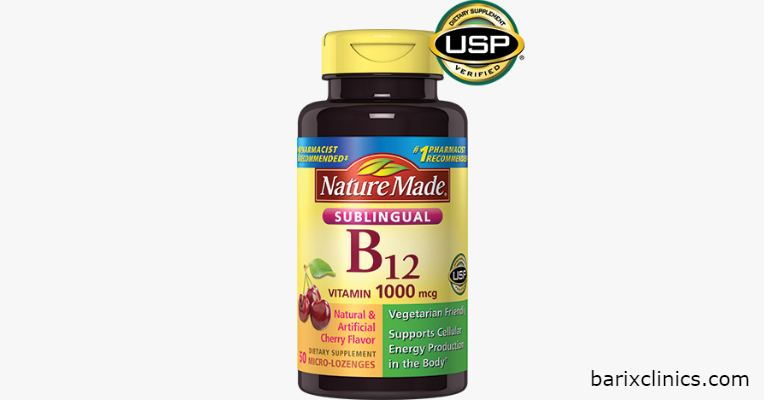Vitamin B 12
Vitamin B 12 has many important functions. It has a role in the formation of the protective sheath around nerve cells; in the metabolism of carbohydrate, protein and fat; in the production of amino acids and fats; in the replication of genetic codes within each cell; and in the formation of neurotransmitters. Adults require 3 micrograms a day.
A Vitamin B 12 deficiency can develop after surgery. Prior to surgery, gastric juices free vitamin B 12 from foods. It then binds with a compound called intrinsic factor in the stomach prior to moving through to the lower small intestine for absorption. Because the lower stomach is bypassed in gastric bypass surgery and removed in gastric sleeve surgery, this process is much less efficient, resulting in a lower absorption rate of vitamin B 12.
Vitamin B 12 supplement options:
- Oral supplementation with vitamin B 12 has limited absorption following gastric bypass and gastric sleeve surgeries.
- Vitamin B 12 injections are an option.
- Sublingual (under the tongue) supplements are a cost efficient and effective solution. They are available over-the-counter in both liquid and dissolvable tablet forms.
- A vitamin B 12 nasal spray is available by prescription.
Supplementation for vitamin B 12 will be recommended by your nutritionist or physician if your Vitamin B 12 levels get close to or below the low end of the acceptable range. It’s important to monitor and supplement a vitamin B 12 deficiency to prevent irreversible nerve damage that can occur from a prolonged deficiency.
Download On Track with Barix: Common Post-op Vitamin Deficiencies


